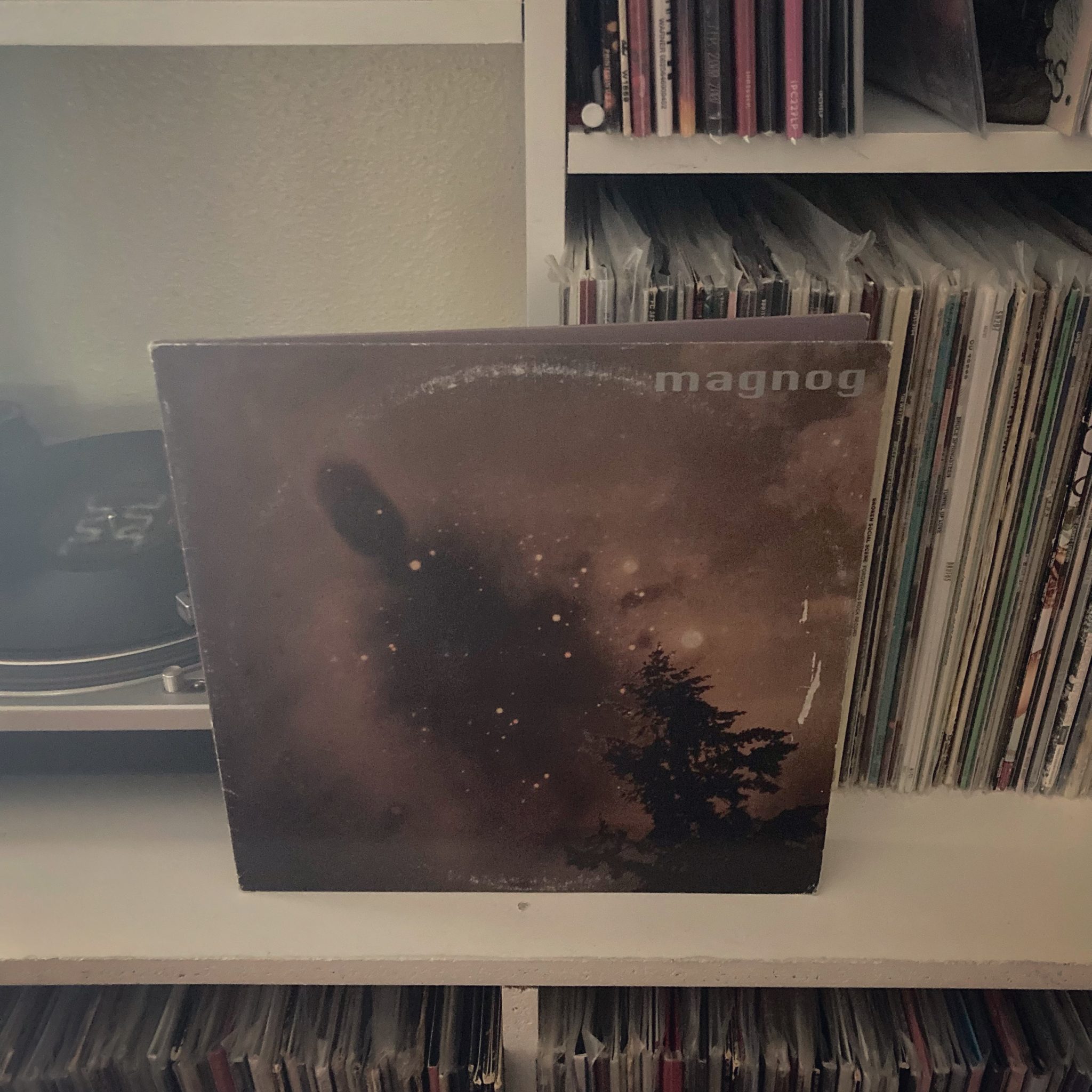 No matter how you feel about Mogwai, there’s no denying that their 1997 debut album Young Team totally changed the trajectory of post rock. That album practically wrote the blueprint for the cinematic, guitar heavy, climax-chasing music that has become synonymous with the genre.
No matter how you feel about Mogwai, there’s no denying that their 1997 debut album Young Team totally changed the trajectory of post rock. That album practically wrote the blueprint for the cinematic, guitar heavy, climax-chasing music that has become synonymous with the genre.
But before Young Team? Post rock still existed, but it was far more abstract. Acts like Bark Psychosis, Talk Talk, Flying Saucer Attack, Tortoise, and even Stereolab were all described under the post rock umbrella without sounding very much like modern post rock (or each other).
Add to that diverse and amorphous list of bands the Washington outfit Magnog, whose brilliant 1996 self-titled was introduced to me earlier this year.
Being of the pre-Mogwai branch of post rock, there’s little here to draw comparisons to bands like Explosions in the Sky or Mono. There are guitars, yes, but there aren’t many discernible guitar melodies. They squawk and squeal through thick effects, at times operating more like a droning sitar than a guitar. At other times, sparkling acoustics strum through layers of delay and reverb.
The drums play loosely as if they learned to play from Miles Davis’ Bitches Brew. The bass loops through acrobatic arpeggios, taking over the melody as the guitars seem uninterested in that role. Occasionally, a buzzing synthesizer will wail above the rest of the instruments, oscillating with feedback
In terms of song structure, it’s loose, if present at all. There’s little of the dramatic dynamic shifts that have become a convention of the genre. Instead, they’re more meditative—at times, practically hypnotic. Dark tracks like “Relay” are menacingly ominous while brighter tracks like “Learned Forgetfulness” are practically blissful. Only two tracks have any vocals: “Learned Forgetfulness” features a quiet spoken word section, and “A Moment’s Seam” has some actual singing between eruptions of an ebowed guitar.
To be clear, this isn’t the type of music to become a hit. No one is going to put these songs in a movie trailer anytime soon, and at times it’s a but too unnerving to be good study music. But there is an intentionality and craftsmanship to even the most ambiguous moments that gives this album an unearthly draw.
And overall, this album represents one of my favorite things as a music fan. No matter how many records I collect, how many Spotify playlists I delve into, how much music I listen to, there always some hidden treasure waiting just beneath the surface. I had never even heard the name Magnog before a friend recommended them after a used copy ended up in the record store they work in. And though my shelves be running out of space and my wife side eyeing the ever growing stack of new records, as long as bands like Magnog remain undiscovered, I’ll keep digging.